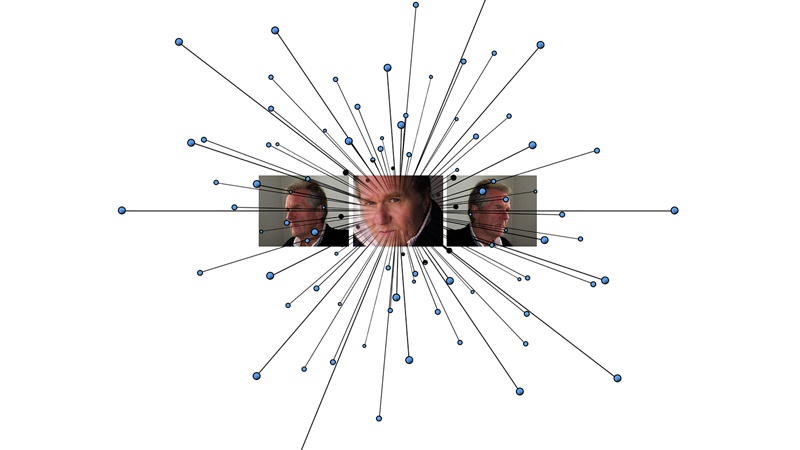Artificial Intelligence is by far one of the most fascinating and astounding creations ever made in the history of mankind. With the advent of its invention, there is still a large domain that is yet to be explored. In fact, its real-world application to date is probably the tip of the iceberg. In the past few years, there has been rapid growth in the domain of AI, making it one of the most lucrative industries.
Looking at its exponential growth, there’s a huge future prospect for Artificial Intelligence. That is why, we have curated this article, to enlighten our readers to the vast world of Artificial Intelligence.
What is Artificial Intelligence (AI)?
In Layman terms, Artificial Intelligence can be used defined as a branch of computer science that can simulate human intelligence. AI is implemented in machines to perform tasks that actually require human intelligence. If you are wondering, what is ai? Some of their primary function includes the like of reasoning, learning, problem-solving and quick decision making.
At the core of it, Artificial Intelligence is nothing but algorithms with certain sets of rules. AI systems have the ability to learn from the iteration of tasks where the computer data (aka machine learning algorithms) are fed to the system. This is exactly how, machine learning can actually get better at doing their specified tasks, without any external interference.
Different Types of Artificial Intelligence
Artificial Intelligence can be further classified based on its complexity to replicate human intelligence. These characteristics refer to their real-world usage, along with the technology involved. This breaks down AI into real and hypothetical systems. The Different types of AI are as follows:
Artificial Narrow Intelligence (ANI)
Artificial Narrow Intelligence (ANI) also commonly known as Narrow AI or Weak AI is the only realistic AI human has achieved so far. This particular approach towards AI is goal-oriented and can perform only designated tasks. Some of the examples of Narrow AI include face recognition, voice assistant, and everything similar that can perform only specified tasks.
From the outside, these machines might seem intelligent, but their operation is always under certain constraints and bounding. This is only of the primary reasons, they are termed as Weak AI. Instead of replicating human intelligence, Narrow AI is best suited for simulation with constrained parameters.
Artificial General Intelligence (AGI)
Artificial General Intelligence (AGI) is also commonly known as Deep AI or Strong AI. It is a conceptual idea where AI can mimic human intelligence. AGI has the capability to learn from its iterative tasks and assist in problem-solving.
In fact, Deep AI has the capability to think and understand, similar to that of humans. But, as of now, researchers have not completely achieved strong AI. In order to successfully create Strong AI, machines need to be conscious while offering them a plethora of cognitive abilities.
Artificial Superintelligence (ASI)
Artificial Superintelligence (ASI) is a completely hypothetical situation where machines can become completely self-aware, even surpassing the likes of human intelligence. As of now, Superintelligence only exists in dystopian science fiction.
The idea of Artificial Superintelligence is that at a certain point in time it can actually understand human intelligence while experiencing the time. They would create their own belief system with their own ideology.
Artificial Intelligence Vs Machine Learning

Artificial Intelligence is the umbrella term used to mimic human intelligence. On the other hand, Machine Learning (ML) is a subset of Artificial Intelligence (AI) that enables a machine to think independently and make choices without any external influence.
Traditionally, AI was programmed with a certain set of roles based on which they could act. These are formed by simple if-else statements. But, ML enables these devices to act based on the data they collect.
Examples of Artificial Intelligence
AI-enabled machines have already taken over, and can easily perform human tasks while discarding all the human errors that come with it. In fact, in a recent survey, 72% of all Americans have expressed their concerns about such a future. No matter how you look at it, starting from your Facebook feed to a simple Google search, everything is a bi-product of Artificial Intelligence. Here are some of the most prominent examples of AI.
1. Manufacturing Robots
The majority of all the manufacturing is done by robots. Robots, as we know of, are nothing but programmable machines that are used to carry out certain tasks. This, in turn, improves efficiency, while making sure that the work is completed with minimum errors. These AI-powered robots are devoid of any general intelligence, but at the same time are capable of problem-solving.
2. Healthcare
Artificial Intelligence has completely changed the way we perceive the healthcare industry. In fact, it can be considered a game-changer, given the plethora of implementations. Starting from robot-assisted surgeries to keeping track of private records, AI has proven to be the most beneficial. Healthcare has always suffered through higher medical costs packed along with inefficient processes. Artificial Intelligence is giving the much-awaited makeover.
3. Finance
One could even say that the finance industry and Artificial Intelligence are the perfect matches made in heaven. While the industry heavily relies upon data accuracy with real-time processing and reporting, AI can support decision-making. The best set example is robo-advisor which is an automated portfolio manager. The set algorithm helps to find the best stock for the portfolio.
4. E-commerce
Ecommerce is yet another platform that has witnessed a huge implementation of Artificial Intelligence. Using machine learning enables companies to create better customer relationships at a personal level. Algorithms driven by AI can personalize the entire user experience, bring forth loyalty while increasing sales to many folds.
Also Read: What is Virtual Machine?
Welcome to the Future
So that our introduction to the fascinating world of Artificial Intelligence. Overall, this gives us a clear picture of AI and where it stands in our modern world. Over the next few years, we can always expect some more implementations of AI in our day-to-day lives.
Do you enjoy reading the article? Let us know your thoughts in the comment section below.
Is AI Going to Take Over the World as We Know of?













I AM SO IMPRESS WITH THE ARTICLE I READ ON ARTIFICIAL INTELLEGENCE.
I HOPE TAKE FULL DEGREE IN THE SUBJECT AREA IN THE FUTURE.
It is very helpfull.Thankyou
I think it is fascinating and scary at the same time.
Betty Patterson
Very good article. I advise my students to learn courses from you.
Venkateswara Rao uriti
Asst.professor
Ponduru
Srikakulam Dist. AP
ITS A GOOD ARTICLE. I APPRECIATE A LOT.THANKS
AI cannot make any moral decisions
Over rated as a learning machine
AI Media love this word and dont even know what it means
Computers are a pain in the Arse and we should learn how to do without them
I started using computers called DOS years ago
A very good article that explained AI in simple terms. I accept Richard Anthony Pearman”s comment AI can’t make moral decisions, Humans have the same limitations, they make moral decisions by what their parents taught them or a religious leader tells them. I know many that in my opinion don’t have good morals. I live in a small mid west town, started school in a one room school, went 3 years of high school & quit. Joined the USMC for 3yrs came home and worked in a large factory 30 yrs. That was the first time I touched a computer, 50 yrs old! using DOS system also. I bought a computer from a Club Store for something to do in retirement, was fascinated. Have never learned enough being self taught. Was born 50 yrs to soon, I can only imagine where they will take us.
can you please help me about that where the future will lead us, is that a best choice for making career in that for rest of the life time____?
They better start controlling population then because they’re taking away jobs at an alarming rate!
A well-presented article Tathagata. Thanks for clearing up the basic definitions. There’s a lot of mention of “AI” in the press at present with little help for anyone who may have missed the initial “memo” for what it actually is. Thanks again.
No, it’s putting people out of jobs….don’t like it one bit.
Though it shows how far human mind can go and do things.
On the other hand, fear of job losses in future is terrifying. AI should give solutions for this problem also.